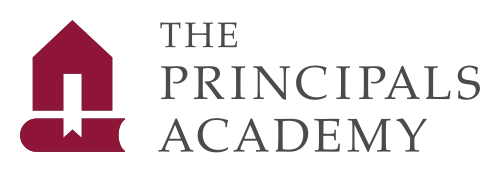Do you remember your very first day as a principal? I remember walking into a staffroom filled with women I did not know. It was a girls’ high school, and I was not only the first man to lead the 112 year old school (it celebrates 150 next year) but the only man in the room. I was ready; not in the sense that I had learned the ropes as a deputy (I hadn’t been one) but I had spent weeks ensuring that my message highlighted my purpose, my vision, my respect and admiration for the social and professional capital in the room, my invitation to work as a team, my promise to do my best to serve the learners and their teachers and my determination to get the new year off to a flying start in week one. I share this to help you to build your own debut image.
I am writing this because it came to mind as I witnessed a brave young woman take the reins of a big, complex, ‘commuter’ high school in the city as the acting principal. Actually, you act as principal when the principal is at a workshop for two days. When the principal retires, you’re not acting. You are the principal. The whole school community needs you to be a strong one and, if you’re willing to take the lead, and that’s a big if, you bring energy, fresh initiative and the power of a team of willing supporters. Together you take the school forward.
When the Principals Academy works with a new principal (usually on the recommendation of a currently coached principal or a caring circuit manager) we only begin a coaching partnership after the first year. Experience tells us it is too crucial and busy a year. The new principal comes in early, leads from the front at the gate, in the staffroom or wherever the school is in action. You’re not there to keep the school going; you set the agenda, you shine the light on the targets already identified, you ensure the routines and processes are clearly understood and operational and you strengthen leadership in every subject, committee or portfolio.
So, when does experience begin to count? Well, that depends. In your first week you learn to listen to learners, teachers and parents, you work with a team in preparing for the weeks ahead and you get to test your ability to deal with the many crises that characterise any school week. They vary from the personal tragedies and setbacks that befall the larger school community, the disruption caused by four teachers absent on the same day, the sudden request for detailed information from an authority, the need to deal with a serious disciplinary issue and on-going admission fall-out, conflict resolution, safety concerns and labour issues. We all know the story.
Getting through that first week as a principal was a memorable experience. But, actually, it only counts as experience if we quickly appreciate the value of taking the time to reflect, to learn the lessons of every day, to understand our and our school’s strengths and weaknesses. That reflection and the willingness to make it count are the key to self and school improvement. And each crisis – there are a few every day – builds our confidence as effective leaders.
Hopefully, being the boss helps you to prioritise people management skills. You quickly understand your responsibility for the wellness as well as the professional development of your staff. This happens best when you view leadership as service and when you learn to put yourself in the shoes of others once in a while.
New principals are strong on improvement plans but the real test comes in executing those strategies. That’s what earns the respect of your stakeholders – plans that work. You learn quickly, too, not to take the credit for the success of your team.
One of the first challenges that principals face is delivering the climate for teachers and learners to succeed. Late-coming and punctuality are often first on the list of improvements. What counts here is tackling the issues in a systemic matter, understanding root causes, how they impact the situation, possible strategies, implementation, monitoring, refining and embedding. New principals can bring entirely different approaches to making schools work more efficiently. Leadership makes you think differently and forces you to make sense of everyday happenings.
The new principal hits the ground running on day one. Ideally, on day two, you’re a better principal.
Till next time.
Paul
Coach/Mentor
The Principals Academy Trust
No: 13/24
28 August 2024

